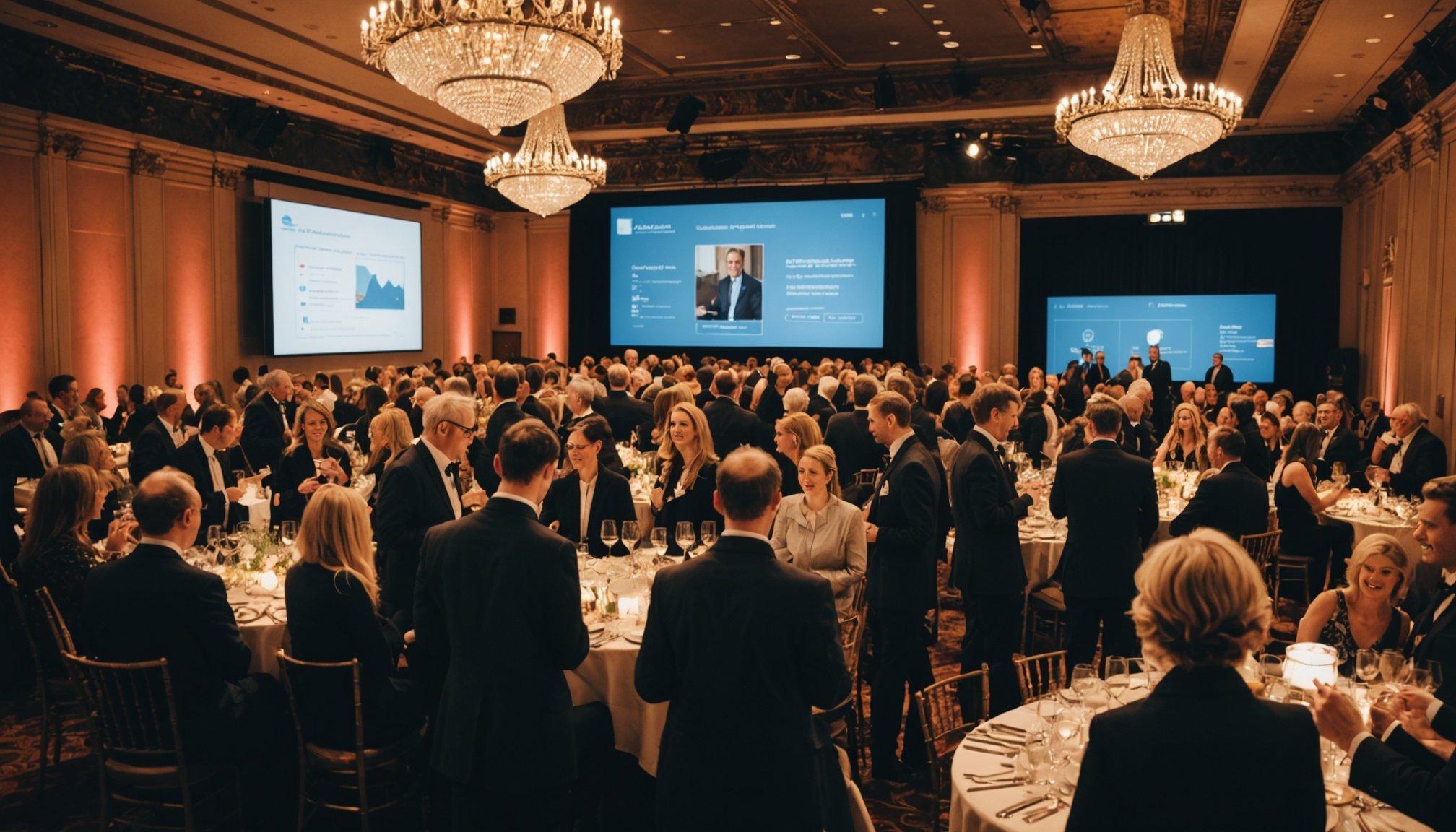Understanding Data Insights in Event Planning
Data insights play a critical role in shaping modern event planning, offering invaluable information to tailor events to specific needs. These insights encompass the analysis and interpretation of data to ascertain patterns and preferences, making them essential for enhancing guest experiences. By understanding guests’ expectations and preferences through data, planners can create more personalised and engaging events.
Event planning increasingly relies on data to inform guest experience strategies, aiming to ensure satisfaction and improve engagement. Planners can harness data to pinpoint what elements of an event will resonate most with attendees, from entertainment options to catering preferences, creating a bespoke experience that maximises enjoyment.
Also read : Harnessing ai innovations: revolutionizing renewable energy management for uk power providers
In the current landscape, trends in data utilisation within event planning have shifted towards more dynamic and real-time adjustments, based on live feedback and interactions. This allows planners to pivot strategies instantaneously to enhance the overall guest experience. Increased use of sophisticated data analytics tools enables a deeper understanding of guests’ needs and preferences, thus helping event planners create highly targeted and successful events. By leveraging these insights, event planning not only becomes more innovative but also leads to higher guest satisfaction and lasting impressions.
Tools and Technologies for Data Collection
The evolution of data collection tools has significantly influenced how events are orchestrated, allowing for a sophisticated analysis of guest data. Key technologies in events, such as RFID badges and mobile applications, enable efficient data gathering before, during, and after events. These tools facilitate smoother check-ins and offer insights into attendees’ interests through their interactions and movements within the venue.
In parallel : Striking the perfect balance: enhancing employee autonomy while maintaining control in uk companies
Technology in events plays a crucial role in enhancing the process of data gathering. Techniques like machine learning algorithms are pivotal for analyzing extensive datasets quickly and extracting valuable insights. By recognising patterns and correlations in guest interactions, these technologies refine strategies to enhance the guest experience.
Utilizing these advanced technologies also ensures seamless integration with event management software, supporting a more coordinated and dynamic approach to guest data analysis. This harmonization enables organizers to adapt and refine event offerings promptly, maintaining high engagement levels.
Through focused analysis using these tools, event planners can determine which elements captivate audiences most, from interactive displays to session topics. The improved access and faster data processing empower planners to make informed decisions, ensuring events are both memorable and highly satisfactory.
Analyzing Guest Preferences and Behaviors
Understanding guest preferences and behaviours is paramount in crafting exceptional event experiences. One effective method is through surveys and feedback, capturing direct input from attendees about their likes and dislikes. Surveys can be distributed before and after events to gather actionable data, providing insights into what aspects guests found most engaging.
Another valuable avenue for behaviour analysis is social media and online platforms. Guests frequently share their experiences and opinions on these channels, offering a wealth of information. By monitoring hashtags, comments, and shared content, event planners can gauge real-time sentiment and identify trends. Tracking engagement metrics helps ascertain which elements resonate with audiences and can inform future planning.
For instance, a case study from UK events demonstrated successful analysis of guest behaviour by leveraging social media insights. Organisers identified key preferences that shaped event themes and activities, resulting in higher satisfaction rates. Techniques such as sentiment analysis and influencer engagement were pivotal in this context.
These approaches, when combined, allow planners to deeply understand guest behaviour patterns, enabling the creation of more tailored experiences. By adequately utilizing feedback and digital data, event professionals can enhance their strategic decision-making and deliver memorable events that align with guest expectations.
Creating Personalized Guest Experiences
Personalized experiences play a pivotal role in enhancing guest engagement at events. By leveraging data-driven strategies, event planners can tailor activities and offerings to better meet individual preferences, significantly boosting satisfaction levels. One effective method involves analysing attendee data to design specific event segments that align with diverse interests, such as customisable schedules or themed networking sessions.
Examples of successful personalization can be found in events that utilise attendee data for targeted experiences. For instance, providing bespoke itineraries based on interests gathered from registration forms can increase relevance and enjoyment for each participant. Additionally, exclusive VIP experiences for repeat attendees or loyalty program members can augment the sense of value and appreciation, fostering stronger connections.
Continual collection of feedback and adaptive changes are essential to maintain relevance and efficacy in personalization. Regularly incorporating direct attendee feedback into future iterations ensures that guest experiences evolve in line with expectations. Furthermore, implementing real-time adjustments via mobile event apps based on participant input can enhance satisfaction dynamically.
In summary, crafting personalized guest experiences not only requires thorough data analysis but also a commitment to agile adaptation and thoughtful implementation strategies, ensuring meaningful and memorable interactions for all attendees.
Case Studies of Successful Data-Driven Events
Case studies of data-driven events highlight how leveraging insights can dramatically enhance guest experiences, proving invaluable in UK event planning. For instance, the renowned Brighton Festival seamlessly incorporated data collection tools and analytics, resulting in increased attendee engagement and satisfaction.
These events harnessed data analytics to personalise the experience for each guest. By employing technology to track guest preferences and behaviour, planners tailored content and engagement strategies. Real-time adjustments during the festivals, such as dynamically shifting popular activities to larger venues or offering additional sessions, showcased responsiveness that resonated well with attendees.
One notable outcome was the significant rise in guest satisfaction levels. Over 90% of participants reported positive experiences, attributing their enjoyment to the personalised touch and smooth organisational flow. Feedback mechanisms helped maintain this success, as planners continuously adapted offerings based on real-time insights.
Lessons learned from these successful implementations include the importance of integrating real-time feedback loops and predictive analytics. Additionally, the case studies illuminated best practices such as maintaining transparency with guests about data usage and focusing on creating an interactive and flexible event atmosphere. Embracing these strategies ensures a memorable and engaging experience in future events.
Future Trends in Data Insights for Event Planning
In the dynamic landscape of event planning, future trends in data insights are set to revolutionise how events are designed and executed. A notable trend is the integration of AI and Machine Learning to analyse complex datasets. This technology promises to provide deeper insights into guest preferences, enabling planners to predict attendee behaviours and craft highly targeted experiences.
Another emerging trend is the use of augmented reality (AR) and virtual reality (VR) to enrich guest experiences. These technologies can offer immersive environments for remote participants, making events more inclusive and engaging. Such innovations facilitate a new way of interacting, ensuring all guests, regardless of physical presence, receive a personalised journey.
Data privacy is becoming a significant priority as these technologies advance. Ensuring transparency and safeguarding attendee information will be crucial as data-driven strategies evolve.
Moreover, real-time data collection and analysis will become standard practice. The ability to adjust event elements instantly, based on live feedback, will lead to more flexible and responsive event planning. Events of the future will likely revolve around enhanced interactivity and personalisation, making the most of these technological advancements to enrich the overall guest experience.









